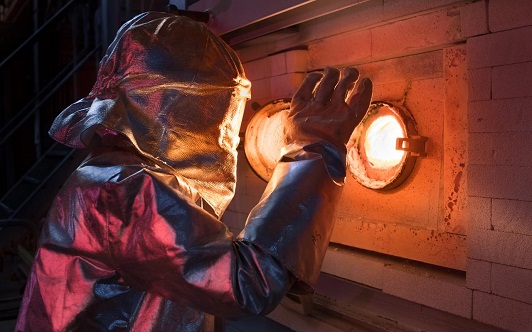
SCHOTT Aims to Reduce Carbon Emissions in Glass Melting
Specialty glass manufacturer SCHOTT received funding of more than $5 million to support the development of glass melting processes. The awards are through the Decarbonization in Industry grant program of the German Federal Ministry for the Environment (BMU).
The government subsidies will be used for two development projects that aim to replace the fossil fuel natural gas with electricity from renewable energy sources in heating the company’s glass melting units.
A first development project focuses on the melting process for pharmaceutical glass, which is used, for example, in manufacturing the vials for COVID-19 vaccines. Last month, SCHOTT said it would double its manufacturing capacity for pharmaceutical glass tubing in China, stemming from a €70 million (~$79.23 million) investment to expand the melting infrastructure in its pharma glass tubing factory in Jinyun, China. SCHOTT supplies high-quality type I middle borosilicate glass tubing for the production of pharma containers that store vaccines.
The second project, which is supported by ~€3.72 million, involves the melting process for specialty glass used in technical applications. Specialty glass is melted at temperatures of up to 1700 °C. Because glass melting is a highly complex process, it is challenging to develop technologies in this area.

SCHOTT has received grants that will allow it to develop technologies to replace the fossil fuel natural gas used in the glass melting process with electricity from renewable sources. Two projects have netted the company more than $5 million from the BMU. Courtesy of SCHOTT.
The funding follows SCHOTT’s announcement last year that it intended to become climate neutral by 2030.
“Technological transformation is our greatest challenge on the path toward climate neutrality,” said Frank Heinricht, chairman of the board of management at SCHOTT. “It requires us to fundamentally rethink glass production and make some groundbreaking innovations. In particular, we are focusing on electrification through green electricity and hydrogen technology.”
/Buyers_Guide/SCHOTT_AG/c13194